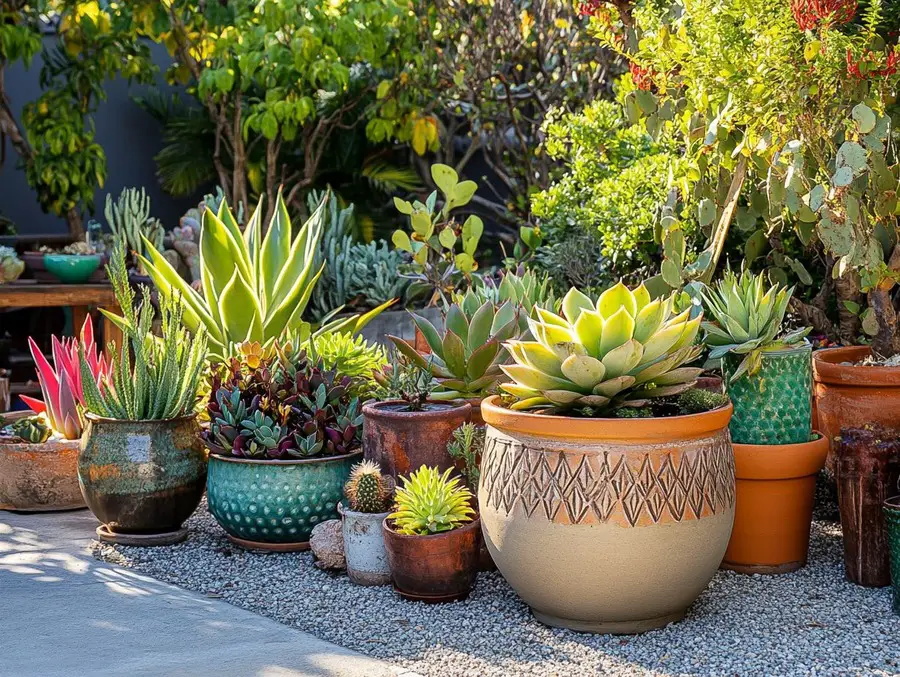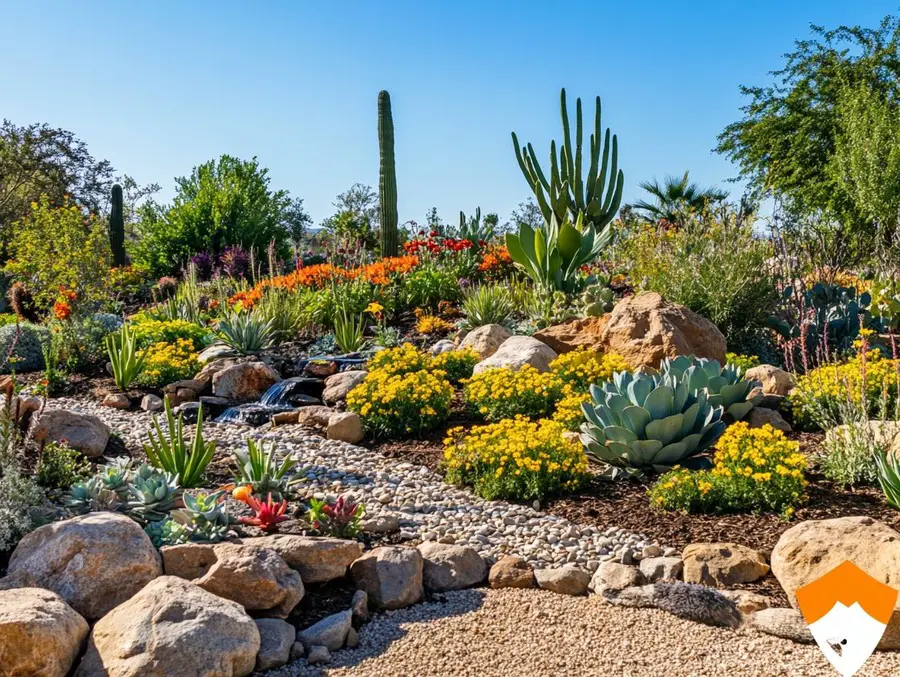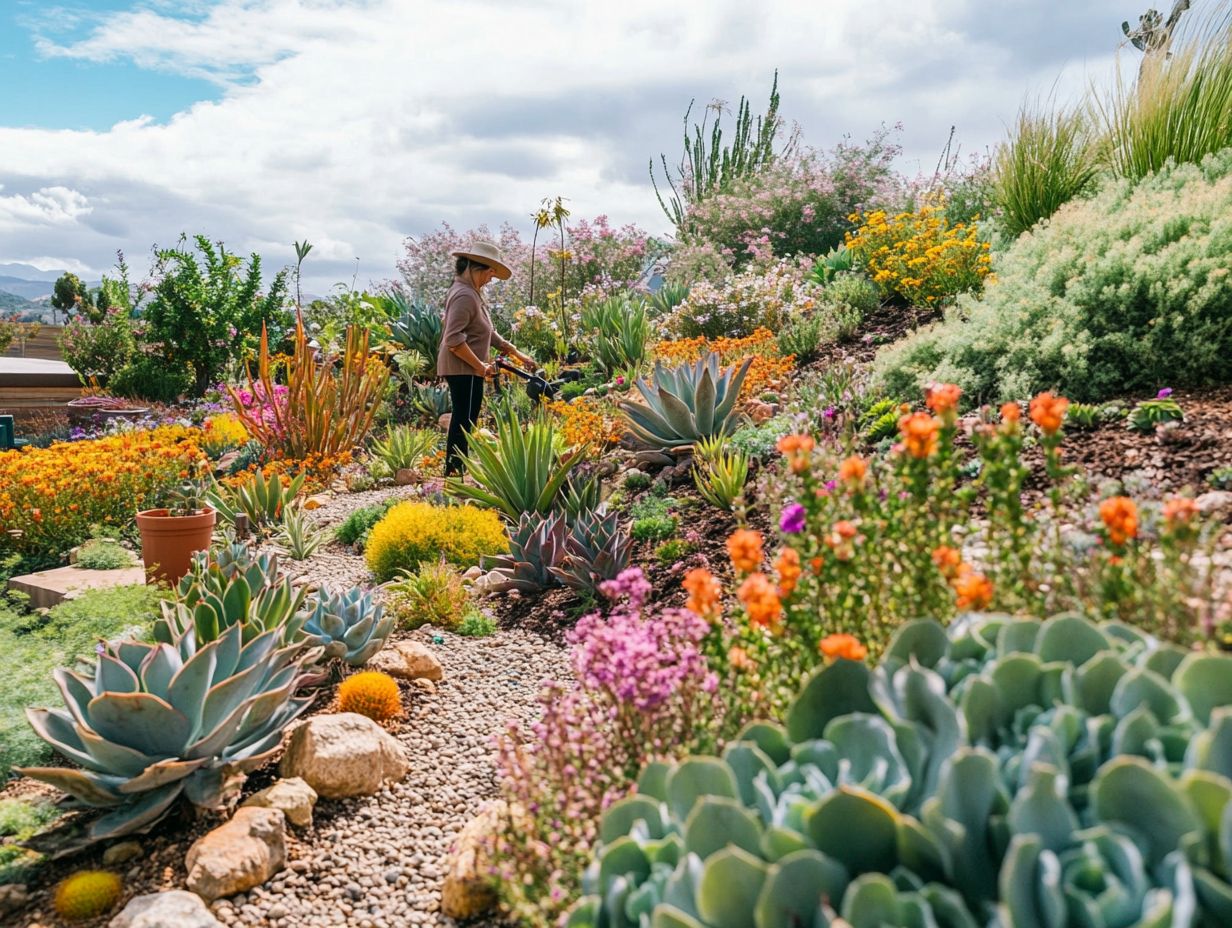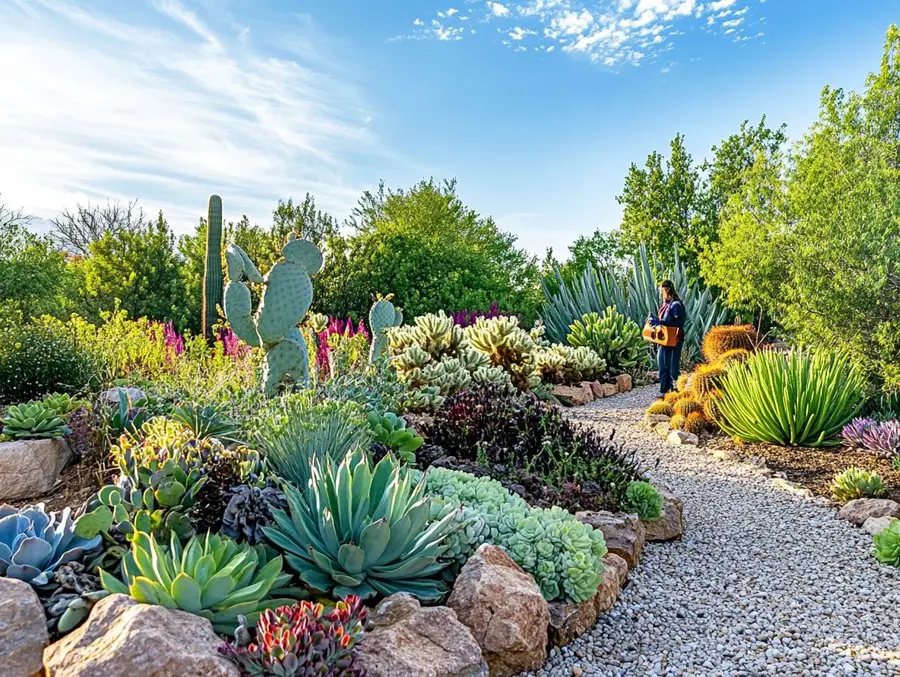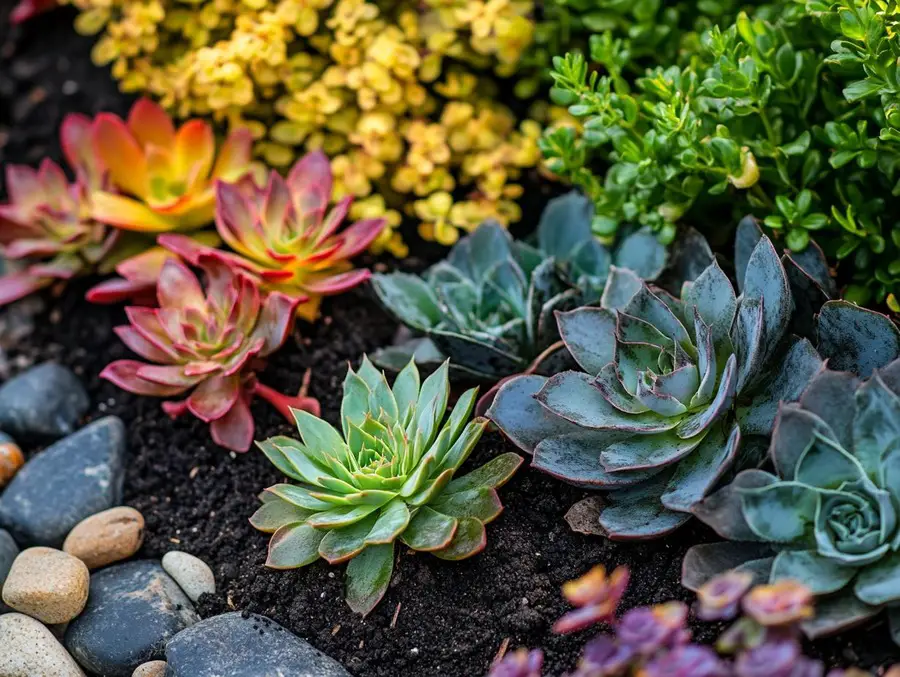We use affiliate links. If you purchase something using one of these links, we may receive compensation or commission.
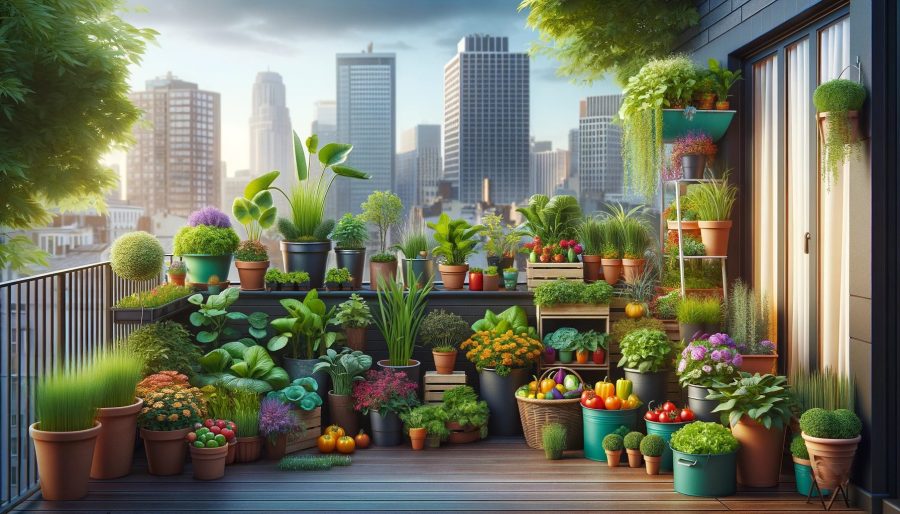
Explore the benefits of urban container gardening, a versatile and eco-friendly way to grow fresh produce in small city spaces. Ideal for urban dwellers!
Urban Container Gardening Benefits
Key Takeaways:
- Urban container gardening benefits include: Maximizing limited space
- Reducing environmental impact
- Providing fresh, homegrown produce.
- It’s ideal for urban areas
- Enhancing green spaces
- Promoting physical activity
- Improving mental health.
- It’s a sustainable, efficient way to garden in the city.
Discover the benefits of urban container gardening, a rewarding and innovative approach to city living.
It’s not just about bringing a slice of nature to urban environments; it’s also about sustainability, space efficiency, and the joy of growing your own food.
Whether you have a balcony, rooftop, or a sunny windowsill, urban container gardening is an accessible and fulfilling hobby for all.
Benefits of Urban Container Gardening
Urban container gardening has become increasingly popular as urban dwellers seek ways to reconnect with nature and grow their own fresh produce in limited spaces.
This innovative gardening method offers a multitude of benefits, including maximizing limited space, reducing environmental impact, and providing a sustainable source of fresh, homegrown produce.
In addition to its practical advantages, urban container gardening promotes physical activity, improves mental health, and allows individuals to cultivate a wide variety of plants, from leafy greens and herbs to tomatoes, peppers, and even strawberries.
If you’re curious about how to start your own urban container garden and the best plants to grow in this setting, read on to discover all you need to know to get started on your urban gardening journey.
Key Takeaways:
- Urban container gardening maximizes limited space in urban areas, making it possible to grow fresh produce in small spaces.
- By reducing environmental impact and promoting sustainable living, urban container gardening helps to create a greener and cleaner city.
- Urban container gardening provides a multitude of physical and mental health benefits, such as promoting physical activity and reducing stress levels.
What Is Urban Container Gardening?
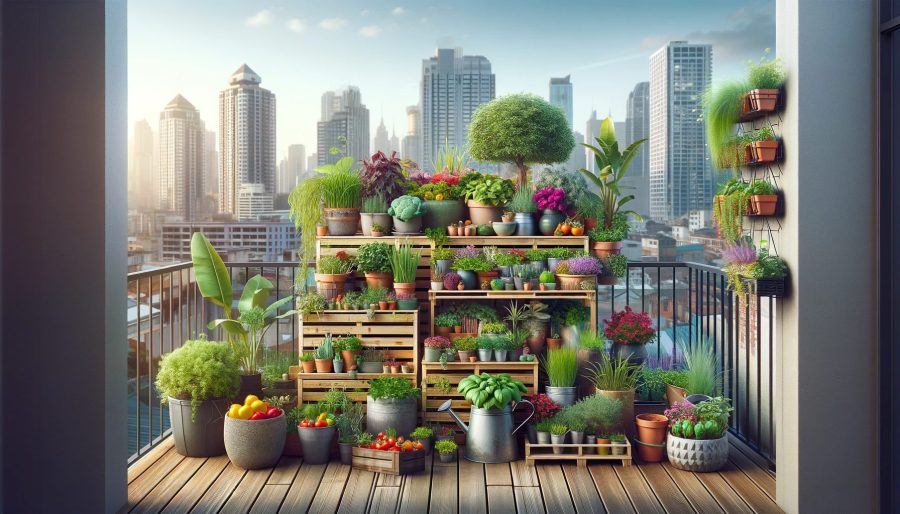
Urban container gardening is a method of growing plants in urban areas using containers or pots, making it an ideal solution for individuals with limited space.
This innovative approach to gardening is particularly beneficial for densely populated urban settings where access to traditional outdoor garden spaces may be limited.
By utilizing containers, such as flowerpots, hanging baskets, or window boxes, urban dwellers can still enjoy gardening and cultivate a variety of plants, including vegetables, herbs, and flowers.
Urban container gardening contributes to the sustainability of urban living by promoting local food production and reducing the carbon footprint associated with transporting produce from rural areas.
It enables individuals to grow their own fresh, organic produce right at their doorstep, fostering a stronger connection to the food they consume.
The introduction of greenery through container gardening can enhance the aesthetic appeal of urban areas, tackling issues related to air quality and urban heat island effect.
By adding more green spaces within the city, container gardening helps regulate temperature and purify the air, thereby creating a more healthy and sustainable urban environment.
Why Is Urban Container Gardening Popular?
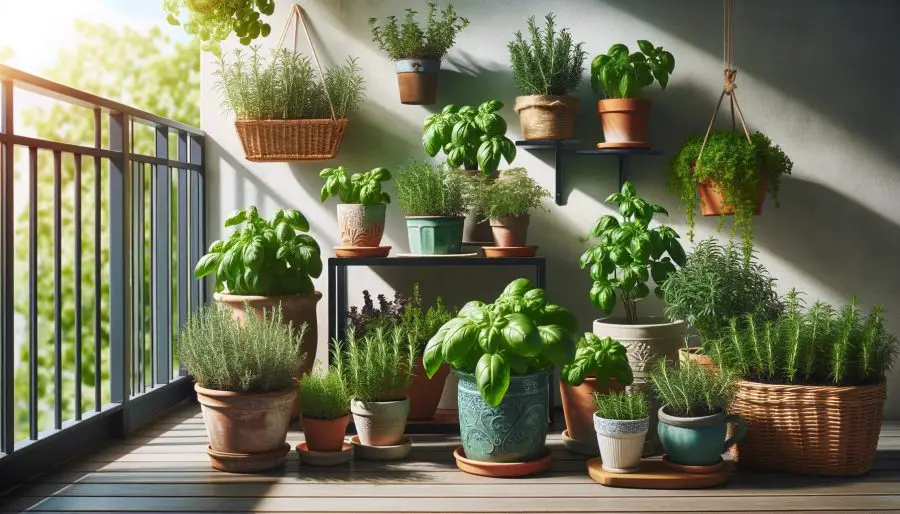
Urban container gardening has gained popularity due to its ability to address food insecurity, promote healthy living, and contribute to sustainable urban living.
This form of gardening provides individuals in urban areas with the opportunity to grow their own fruits, vegetables, and herbs within the limitations of limited space.
The self-sufficiency it offers plays a vital role in supplementing the availability of fresh and nutritious produce.
It encourages a deeper connection with nature and the creation of green spaces within bustling city environments, ultimately contributing to improved mental well-being.
Urban container gardening fosters environmental sustainability by reducing the carbon footprint associated with food transportation and storage and serves as an ideal platform for educating communities on the importance of local food production.
What Are The Benefits Of Urban Container Gardening?
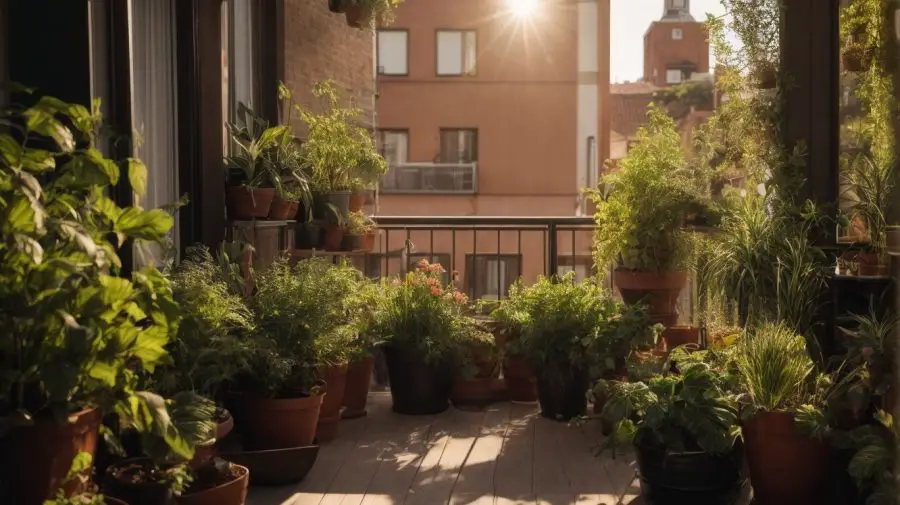
Urban container gardening provides a multitude of benefits, from maximizing limited space to promoting social cohesion and reducing the environmental impact of urban living.
Maximizes Limited Space
One of the key benefits of urban container gardening is its ability to maximize limited space, allowing individuals to cultivate plants and produce in constrained urban environments.
Container gardening offers a versatile solution for those living in apartments or homes with limited outdoor space.
By utilizing containers of various sizes and types, such as pots, hanging baskets, or vertical planters, individuals can create small gardens on balconies, patios, or even rooftops.
This method not only optimizes available space but also enables the cultivation of a wide variety of plants, from herbs and vegetables to flowers and shrubs.
Vertical Gardening
The concept of vertical gardening takes urban container gardening to new heights, quite literally.
With this approach, individuals can make use of walls, trellises, and other vertical structures to grow plants, effectively maximizing the space in areas where ground space is scarce.
It not only adds aesthetic appeal to urban landscapes but also contributes to sustainable gardening practices, reducing the environmental impact by introducing greenery into densely populated cityscapes.
Reduces Environmental Impact
Urban container gardening contributes to reducing the environmental impact of urban living by improving air quality and enhancing green spaces within the cityscape.
By cultivating a variety of plants and vegetables in small yet sustainable containers, urban dwellers can play an active role in mitigating pollution and reducing the carbon footprint associated with food production and transportation.
The act of nurturing greenery in urban spaces not only brings aesthetic appeal but also helps in absorbing carbon dioxide and releasing oxygen, thereby significantly contributing to better air quality.
The creation of urban green spaces through container gardening leads to the development of sustainable ecosystems, supporting biodiversity and providing urban habitats for birds, insects, and other wildlife.
Provides Fresh Produce
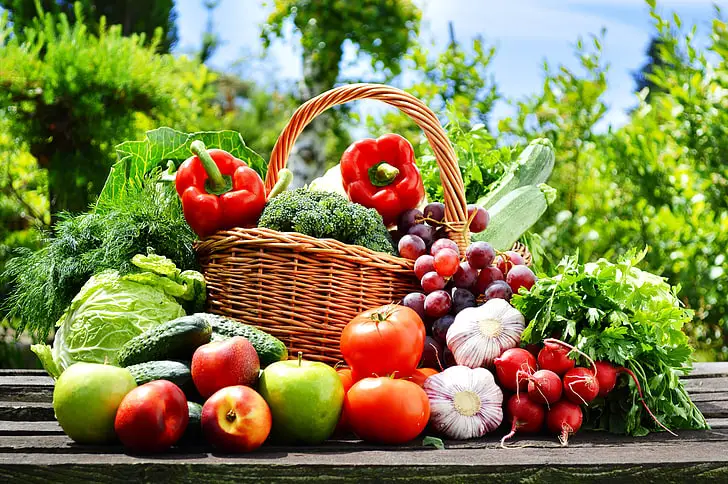
One of the significant benefits of urban container gardening is the provision of fresh produce, addressing food insecurity, and promoting access to healthy, high-quality food in urban areas.
By growing fruits, vegetables, and herbs in limited spaces such as balconies, rooftops, or small yards, urban container gardening offers an efficient solution for individuals and communities to harvest their own fresh, organic produce.
This practice not only contributes to reducing food deserts in urban environments but also enables people to take control of their food sources while promoting sustainable living.
The impact is far-reaching, as it encourages a shift towards healthier dietary choices and fosters a stronger connection between individuals and the food they consume.
Promotes Physical Activity
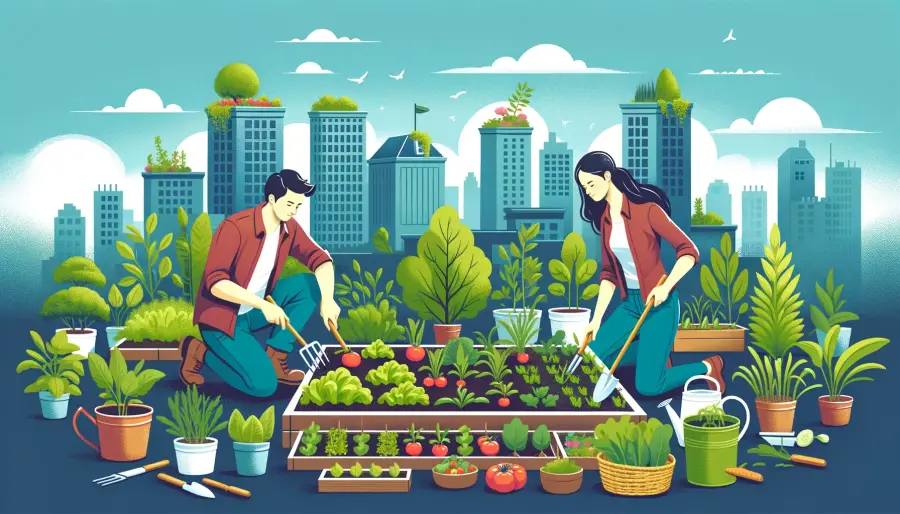
Urban container gardening promotes physical activity by engaging individuals in gardening tasks, contributing to a healthy and active lifestyle.
Engaging in activities such as planting, watering, and pruning plants in a container garden not only enhances physical strength and flexibility but also encourages a deeper connection with nature.
The exertion involved in tending to the garden, including lifting, bending, and reaching, serves as a form of low-impact exercise.
Moreover, container gardening creates opportunities for incorporating more movement into daily routines, fostering a sense of accomplishment and well-being. The act of nurturing plants in a limited space cultivates mindfulness, reduces stress, and promotes mental tranquility.
Improves Mental Health
Engaging in urban container gardening contributes to improving mental health by fostering social cohesion and providing a sense of community through shared gardening experiences.
Urban container gardening transcends the conventional solitary activity of tending plants in pots.
It sets the stage for neighbors to come together, bond over a common interest, and share their knowledge and experiences.
The act of working collectively towards a greener urban environment not only enhances the physical landscape but also nurtures a supportive and inclusive community culture.
What Are The Best Plants To Grow In Urban Container Gardens?
Regarding urban container gardening, selecting the best plants to grow is essential for ensuring a bountiful harvest of fresh, healthy produce within limited space.
Leafy greens such as lettuce and spinach are excellent choices for container gardens, offering a continuous supply of nutritious leaves while taking up minimal space.
Herbs like basil, parsley, and chives thrive in small containers, providing fresh flavors for culinary delights.
Tomatoes, especially compact varieties like cherry or patio tomatoes, can flourish in containers if provided with adequate support and sunlight.
Similarly, peppers and strawberries can also yield impressive harvests when grown in urban containers, making them popular choices for urban gardeners.
Leafy Greens
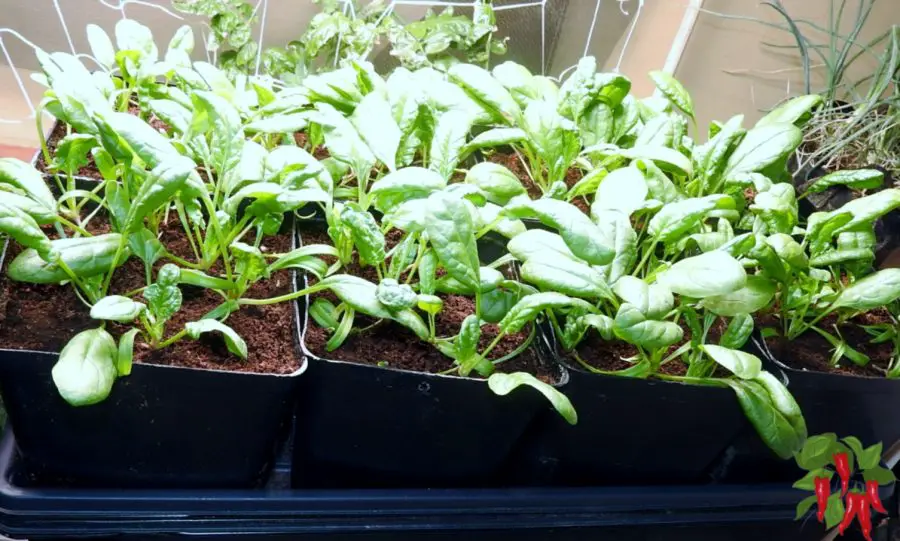
Growing leafy greens in urban container gardens is a rewarding choice, as these nutritious plants yield an abundance of fresh, healthy produce within limited space.
Container gardens offer urban dwellers the opportunity to enjoy the benefits of leafy greens without the need for a traditional outdoor garden.
With the right setup, enthusiasts can cultivate an array of nutrient-packed greens, such as spinach, kale, and lettuce, right on their balconies or patios.
These greens not only enhance the aesthetic appeal of the living space but also ensure a regular supply of vitamin-rich, flavorful additions to meals.
Herbs
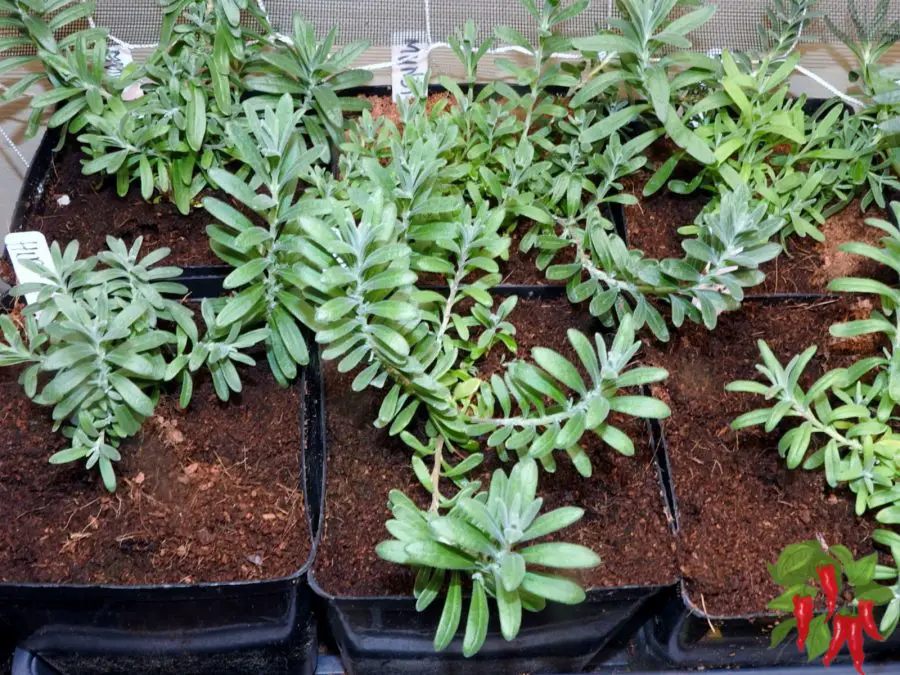
Herbs are an excellent choice for urban container gardens, offering a sustainable source of flavor and nutrition while enhancing the greenery in urban living spaces.
These versatile plants not only thrive in limited spaces but also provide a fresh and convenient supply of culinary additions for the household.
Whether it’s basil for homemade pesto, mint for refreshing cocktails, or rosemary for savory dishes, urban gardeners can easily access a variety of flavors just outside their door.
Growing herbs in urban areas contributes to a more sustainable lifestyle, promoting a reduced carbon footprint by minimizing shipping and packaging associated with store-bought herbs.
Tomatoes
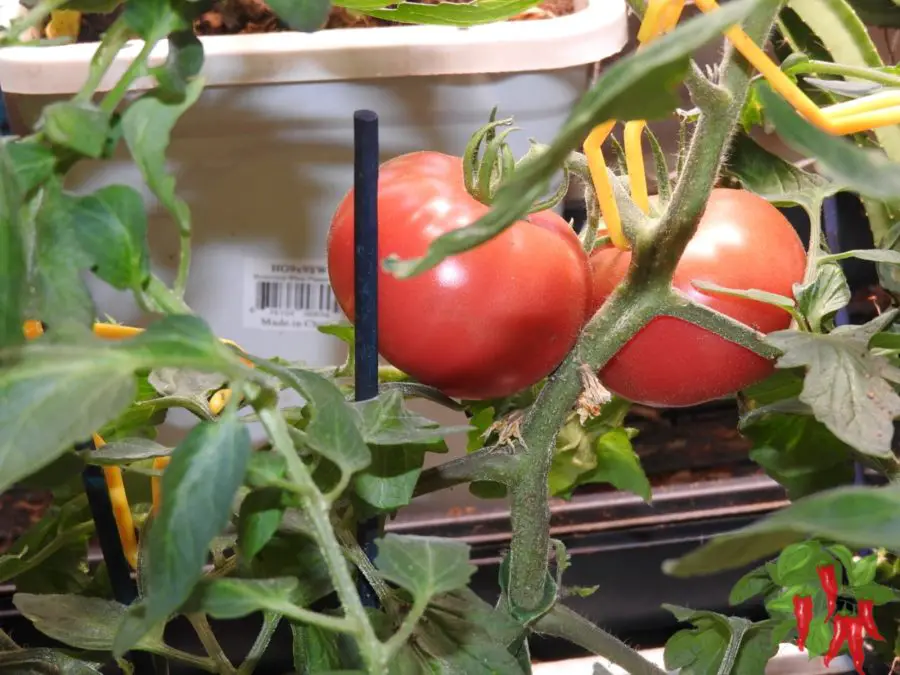
Growing tomatoes in urban container gardens is a popular choice, as these vibrant fruits provide a rich source of fresh produce and contribute to the availability of healthy food in urban areas.
Tomatoes are adaptable to a variety of container environments, making them feasible for city dwellers with limited outdoor space.
With the right care and attention, tomatoes thrive in containers, adding a splash of color and functionality to balconies, patios, and rooftops.
By cultivating tomatoes in containers, urban gardeners can enjoy the satisfaction of growing their own food while also reducing their carbon footprint.
It’s a rewarding process to watch the transformation from tiny seedlings to luscious, ripe tomatoes ready to be plucked and savored.
Peppers
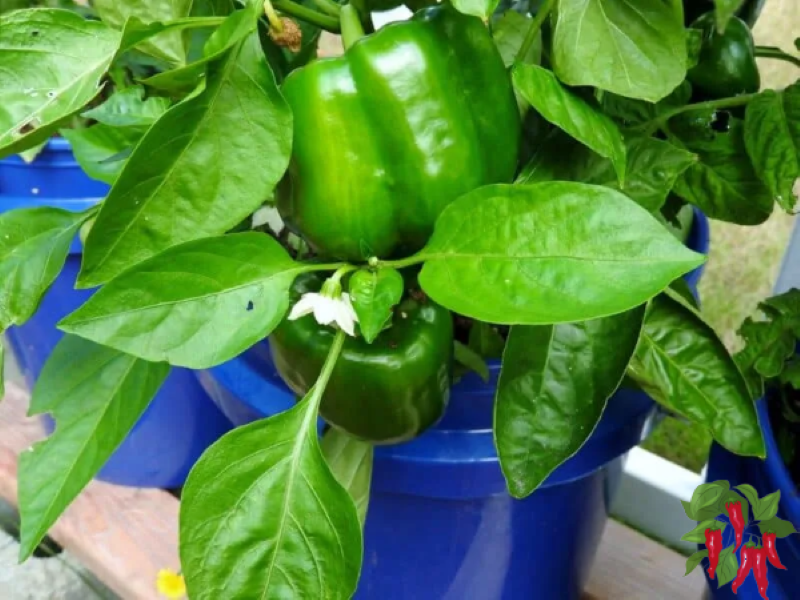
Growing peppers in urban container gardens add vibrancy and flavor to urban living spaces, providing a delightful source of fresh produce and enriching the culinary options for urban gardeners.
Peppers are a versatile and rewarding plant to grow in containers due to their compact size, stunning variety of colors, and the potential to be used in a wide array of dishes, including appetizers, salads, main courses, and salsas.
They thrive in warm, sunny environments, making them ideal for urban balconies, patios, or even windowsills where ample sunlight can be harnessed.
When caring for peppers, it is essential to ensure proper drainage, sufficient water, and a nutrient-rich soil mix, such as a well-balanced potting mix enriched with compost.
With a little attention and care, urban gardeners can enjoy a bountiful harvest of peppers throughout the growing season, adding a delightful touch of culinary diversity to their urban living spaces.
Strawberries
Cultivating strawberries in urban container gardens introduces a delightful touch of sweetness and freshness, providing a luscious source of fresh produce while enhancing the urban environment with vibrant berries.
Strawberries are well-suited for container growth, as they require minimal space and can thrive on balconies, patios, or rooftop gardens.
Selecting a suitable container with proper drainage is crucial, as excess moisture can lead to root rot.
Regarding care, strawberries need well-drained, slightly acidic soil and at least 6-8 hours of sunlight.
Regular watering and fertilization are essential, and protective measures against pests and diseases should be taken to ensure a bountiful harvest.
Choose from an everbearing or day neutral variety for continuous fruit production or a June bearing variety.
By growing strawberries in urban areas, individuals can not only enjoy the pleasure of seeing their plants thrive but also relish the taste of freshly picked berries straight from their own urban garden.
How To Start An Urban Container Garden?
Starting an urban container garden involves several key steps, from selecting the right containers to maintaining the garden regularly, ensuring a thriving and sustainable gardening experience.
When choosing containers, opt for ones with adequate drainage holes to prevent waterlogging and facilitate air circulation.
The soil plays a crucial role, so look for a quality potting mix rich in organic matter.
Don’t use garden soil in containers. Choose a potting soil or a coco coir mix.
Position your containers in spots with sufficient sunlight and protection from strong winds.
This ensures the optimal well-being of your plants.
Regarding plant selection, consider the space and lighting conditions. Herbs, cherry tomatoes, and salad greens are popular choices for container gardens.
Regular watering, fertilizing, and pest control are essential for maintaining a healthy urban garden and promoting sustainable living through homegrown produce.
Choose The Right Containers
Selecting the right containers is a crucial starting point for urban container gardening, as it ensures the sustainability and functionality of the garden in urban environments.
When choosing containers for urban gardening, it’s vital to consider the materials.
Biodegradable options such as natural fibers or recycled materials align with sustainable practices.
Size also plays a significant role; smaller containers are suitable for herbs and small vegetables, while larger ones cater to plants with extensive root systems.
Recycled plastic or metal containers are durable choices. Upcycling items like old barrels or wooden crates add an eco-friendly touch to the garden, promoting environmental consciousness while fostering urban green spaces.
Select The Right Soil
Selecting the right soil for urban container gardening is essential for ensuring healthy plant growth and sustainable gardening practices in urban areas.
When choosing soil for urban container gardening, it’s important to consider its drainage and moisture retention properties to prevent waterlogged or parched conditions that can hamper plant growth.
Optimal soil should also provide aeration for the roots and proper anchorage for the plants’ stability.
Look for a balanced mix of organic matter, peat moss, perlite or vermiculite, and sand for the ideal soil composition.
This ensures sufficient nutrients and supports the development of a well-structured root system in limited spaces, which is crucial in urban gardening setups.
Determine The Right Location
Determining the right location for an urban container garden involves evaluating factors such as sunlight, accessibility, and community engagement, ensuring a well-integrated and sustainable gardening space.
When selecting a suitable spot for an urban container garden, the sunlight exposure level is crucial.
Most vegetables and herbs require at least 6-8 hours of direct sunlight daily.
You can use an LED grow light to grow plants indoors if the light is lacking outdoors or you don’t have a balcony.
Consider locations with ample southern or western exposure to maximize sunlight for plant growth.
Assess the accessibility of the chosen area, ensuring it is easily reachable for watering, maintenance, and harvest.
Integrating the garden into the local community can foster a sense of belonging and shared responsibility.
This engagement can promote sustainable living and strengthen community bonds through collaborative gardening efforts.
Choose The Right Plants
Choosing the right plants for an urban container garden involves selecting varieties that thrive in confined spaces, yield fresh produce, and contribute to a vibrant and sustainable urban environment.
When deciding on plants for an urban container garden, it’s crucial to consider the specific needs of each plant to ensure they can adapt to the limited space available.
Choosing plants that are well-suited for container growth, such as compact varieties of vegetables and herbs, is essential for maximizing the yield of fresh produce.
Selecting plants that contribute to a lush and vibrant urban environment by enhancing the local ecosystem and supporting pollinators further enhances the overall appeal and sustainability of the space.
Maintain The Garden Regularly
Regular maintenance is essential for ensuring the health and sustainability of an urban container garden, creating a thriving and visually appealing green space in urban areas.
Consistent watering is crucial to keep the plants healthy and thriving, especially in the warm months.
Regularly checking the moisture levels and adjusting watering schedules based on weather conditions can make a significant difference in the garden’s vitality.
Additionally, pruning and removing dead or decaying foliage help maintain the garden’s aesthetic appeal and encourage new growth.
Effective pest control is another vital aspect of maintenance.
Monitoring for pests and applying organic solutions can prevent infestations and protect the garden’s ecosystem.
Regular maintenance not only fosters sustainable gardening but also contributes to a lively and attractive urban environment, enhancing the well-being of the community and residents.
Urban Container Gardening Benefits FAQs
Q. What are the benefits of urban container gardening?
A. Urban container gardening offers numerous benefits such as easy maintenance, space optimization, and accessibility for city dwellers.
Q. Can anyone do urban container gardening?
A. Absolutely! Urban container gardening is suitable for both beginners and experienced gardeners, as it requires minimal time, space, and effort.
Q. How does urban container gardening help the environment?
A. Urban container gardening helps the environment by reducing carbon footprint, promoting biodiversity, and improving air quality in cities.
Q. What types of plants can be grown in urban container gardens?
A. Urban container gardens are versatile and can grow a variety of plants, including vegetables, herbs, flowers, and even small trees and shrubs.
Q. Are there any health benefits associated with urban container gardening?
A. Yes, urban container gardening can provide numerous health benefits such as stress relief, improved mental well-being, and access to fresh and nutritious produce.
Q. Do I need a lot of space to start an urban container garden?
A. No, one of the main benefits of urban container gardening is that it can be done in small spaces, such as balconies, rooftops, and even windowsills, making it ideal for city living.
Benefits of Urban Container Gardening Conclusion
In conclusion, urban container gardening offers a unique and valuable solution for city dwellers to engage with nature, even in limited spaces.
This method of gardening not only beautifies urban environments but also contributes to sustainable living, mental well-being, and community building.
Let’s explore some key takeaways that highlight the impact and advantages of this gardening approach.
Maximizing Space in Urban Areas
Urban container gardening is a perfect solution for space constraints in city living.
It enables residents to transform small balconies, rooftops, or patios into productive green spaces, effectively utilizing every inch for growing a variety of plants.
Environmental Benefits
This form of gardening plays a significant role in reducing the urban carbon footprint.
By growing plants in containers, city dwellers contribute to air purification and temperature regulation, making urban areas greener and more sustainable.
Health and Wellness
The physical activity involved in maintaining a container garden promotes health, while the act of nurturing plants has been shown to significantly reduce stress and improve mental well-being.
Community and Education
Urban container gardening fosters community engagement and educational opportunities.
Sharing gardening experiences and knowledge helps in building a sense of community and raises awareness about sustainable living practices.
Self-Sufficiency in Food Production
Growing your own food in an urban container garden ensures a fresh, organic supply of fruits, vegetables, and herbs, contributing to food security and independence in urban settings.
Final Thoughts
Urban container gardening is more than just a hobby; it’s a lifestyle choice that brings numerous benefits to urban dwellers.
It represents a step towards a more sustainable, healthy, and community-oriented urban life.
As an urban container grower, I want to encourage you to give container gardening a try. Happy Gardening!
Related Content
Visit my Amazon Influencer Page for videos and gardening products Grow Your Own Garden










